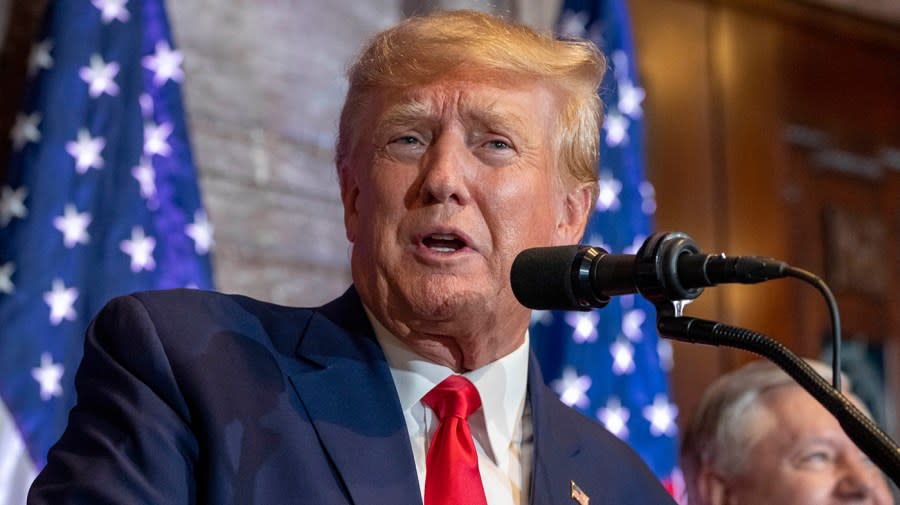Trump moves to quash Georgia election probe

Former President Trump is moving to quash a Georgia investigation into his efforts to influence the outcome of the 2020 election, seeking to bar the use of any evidence presented to a grand jury reviewing the matter.
In a 50-page filing in a Fulton County court, Trump’s attorneys blasted the investigation as “confusing, flawed, and, at times, blatantly unconstitutional.”
The Monday filing seeks to block the use of a report from a grand jury on the matter and bar Fulton County District Attorney Fani Willis’s (D) involvement in the case, and it attacks a series of interviews given by jury forewoman Emily Kohrs.
“Given the scrutiny and the gravity of the investigation and those individuals involved — namely the movant Donald J. Trump, this process should have been handled correctly, fairly, and with deference to the law and the highest ethical standards,” attorneys Jennifer Little, Drew Findling and Marissa Goldberg wrote in the filing.
The effort from Trump follows the close of a monthslong Georgia investigation with more than a dozen notified targets, including former Trump attorney Rudy Guiliani and others who met to discuss a plot to craft a false slate of electors to certify his victory in a state he lost to President Biden.
In a hearing where Willis sought to block the release of the grand jury report and its synopsis of charging recommendations, the district attorney noted charging decisions in the case are imminent.
The argument from Trump seems to challenge the grand jury process in its entirety, saying the statues creating them are too vague to be constitutional. His attorneys also argue that such processes should only be used for civil rather than criminal matters.
In doing so the attorneys partially quote from an order from Fulton County Superior Court Judge Robert McBurney calling the grand jury process “imbalanced, incomplete and one-sided.”
But in the order, McBurney noted that grand juries are “entirely appropriately — a one-sided exploration” and said that “does not mean the district attorney’s investigative process was flawed or improper or in any way unconstitutional.”

 Yahoo Autos
Yahoo Autos 